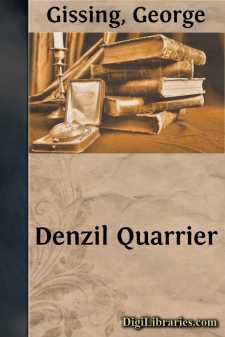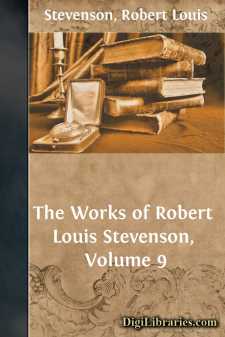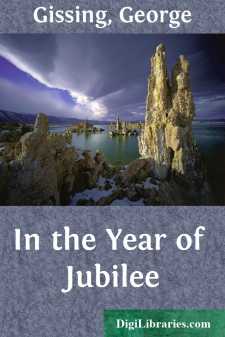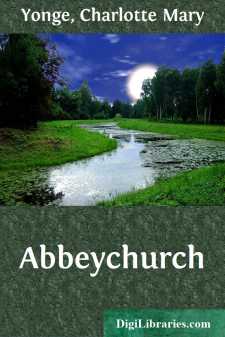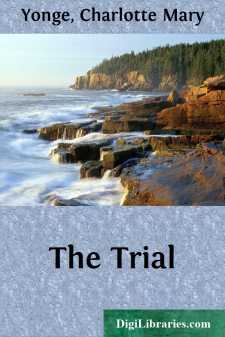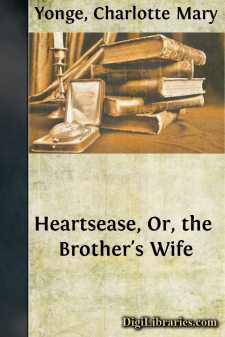Literary Collections
- American 84
- Ancient, Classical & Medieval 14
- Asian 1
- Australian & Oceanian 1
- Canadian 55
- Continental European 121
- English, Irish, Scottish, Welsh
- Essays 160
- General 24
- Letters 46
- Middle Eastern 1
English, Irish, Scottish, Welsh Books
Sort by:
by:
Andrew Lang
THE SECOND CABIN I first encountered my fellow-passengers on the Broomielaw in Glasgow. Thence we descended the Clyde in no familiar spirit, but looking askance on each other as on possible enemies. A few Scandinavians, who had already grown acquainted on the North Sea, were friendly and voluble over their long pipes; but among English speakers distance and suspicion reigned supreme. The sun was soon...
more...
by:
George Gissing
CHAPTER I For half an hour there had been perfect silence in the room. The cat upon the hearthrug slept profoundly; the fire was sunk to a still red glow; the cold light of the autumn afternoon thickened into dusk. Lilian seemed to be reading. She sat on a footstool, her arm resting on the seat of a basket-chair, which supported a large open volume. But her hand was never raised to turn a page, and it...
more...
THE FOREIGNER AT HOME “This is no’ my ain house; I ken by the biggin’ o’t.” Two recent books, one by Mr. Grant White on England, one on France by the diabolically clever Mr. Hillebrand, may well have set people thinking on the divisions of races and nations. Such thoughts should arise with particular congruity and force to inhabitants of that United Kingdom, peopled from so many different...
more...
by:
George Gissing
CHAPTER 1 At eight o'clock on Sunday morning, Arthur Peachey unlocked his front door, and quietly went forth. He had not ventured to ask that early breakfast should be prepared for him. Enough that he was leaving home for a summer holiday—the first he had allowed himself since his marriage three years ago. It was a house in De Crespigny Park; unattached, double-fronted, with half-sunk basement,...
more...
CHAPTER I. One summer afternoon, Helen Woodbourne returned from her daily walk with her sisters, and immediately repaired to the school-room, in order to put the finishing touches to a drawing, with which she had been engaged during the greater part of the morning. She had not been long established there, before her sister Katherine came in, and, taking her favourite station, leaning against the window...
more...
CHAPTER I Quand on veut dessecher un marais, on ne fait pas voter les grenouilles.—Mme. EMILE. DE GIRADIN 'Richard? That's right! Here's a tea-cup waiting for you,' as the almost thirty-year-old Incumbent of Cocksmoor, still looking like a young deacon, entered the room with his quiet step, and silent greeting to its four inmates. 'Thank you, Ethel. Is papa gone out?'...
more...
FASHIONABLE PHILOSOPHY. Scene—A London Drawing-room. Time—5 o’clock p.m. The afternoon tea apparatus in one corner of the room, and Lady Fritterly on a couch in another. The Hon. Mrs Allmash is announced. Lady Fritterly. How too kind, dear, of you to come, and so early, too! I’ve got such a lot of interesting people coming, and we are going to discuss the religion of the future. Mrs...
more...
by:
George Eliot
CHAPTER I In the days when the spinning-wheels hummed busily in the farmhouses—and even great ladies, clothed in silk and thread-lace, had their toy spinning-wheels of polished oak—there might be seen in districts far away among the lanes, or deep in the bosom of the hills, certain pallid undersized men, who, by the side of the brawny country-folk, looked like the remnants of a disinherited race....
more...
CHAPTER 1 There are none of England's daughters that bear a prouder presence. And a kingly blood sends glances up, her princely eye to trouble,And the shadow of a monarch's crown is softened in her hair. —ELIZABETH BARRETT BROWNING The sun shone slanting over a spacious park, the undulating ground here turning a broad lawn towards the beams that silvered every blade of grass; there, curving...
more...
by:
Walter Pater
[3] THE making of an anthology of English prose is what must have occurred to many of its students, by way of pleasure to themselves, or of profit to other persons. Such an anthology, the compass and variety of our prose literature being considered, might well follow exclusively some special line of interest in it; exhibiting, for instance, what is so obviously striking, its imaginative power, or its...
more...



